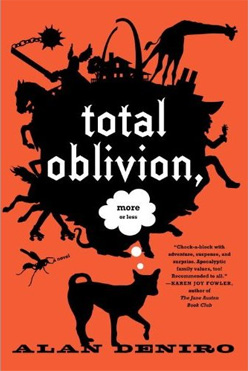Simone Weil and Social Media
My computer has been in the shop for, like, about a month because of a virus. I haven’t really had a backup computer suitable for blogging. UNTIL NOW.
OK, so it’s time to blog about the sorcery of social media.
This essay by Jim Grote adroitly puts together a case for Simone Weil‘s theory of “social force” as one that is extremely relevant in our highly networked times. Indeed her theories tie in astonishingly well (considering they were written before and during World War II) to how our social media works-in a manner that is almost purely reputation based. And reputation creates prestige:
Prestige “rests principally upon that marvelous indifference that the strong feel toward the weak, an indifference so contagious that it infects the very people who are the objects of it.”
In manners of trivial angst, you can see how this works with Twitter “followers”: the desire for more, and the efforts to acquire more. People aren’t necessarily “followed” for what is being written but rather for the unit of reputation that that content creator represents.
Thus, according to Weil, the consolidation of power in these forms of media (or mediated forms) only increases reputation as the main unit of currency in our society. It’s a “post-modernization” of prestige (post-modern not in the lit-crit sense, but in a sense of work-machines and systems, e.g., from ticker tape to the computer). And this prestige imbalance (provided one buys into the system) creates power disparity:
We read, but also we are read by other. Interferences in these readings. Forcing someone to read himself as we read him (slavery). Forcing others to read us as we read ourselves (conquest). A mechanical process. More often than not a dialogue between deaf people …. Every being cries out to be read differently.
*
Social force is bound to be accompanied by lies. That is why all that is highest in human life, every effort of thought, every effort of love, has a corrosive action on the established order …. The social order, though necessary, is essentially evil, whatever it may be.
This isn’t to say that Twitter is some inherently diabolical force in our culture, but rather it is indicative of how the forces in our culture operate. There is no purity in this; it’s hard to break out of seeing “beyond” social media when it is an aether that surrounds us. I get excited when someone even vaguely semi-famous follows me on Twitter. Why is that? The craving for attention, for recognition is all-pervasive. A total repudiation of this would be unthinkable for many people, especially in Generation Y and younger. The New York Times had an interesting article of late about the possible rewiring of the brain that takes place because of the prevalence of gadgetry and communication tools at our (by “our”, meaning a certain segment of the developed world-certainly cell phone usage is not a developed-world phenomenon; I would contend however that the onslaught overload of the continually new is) disposal.
He goes to sleep with a laptop or iPhone on his chest, and when he wakes, he goes online. He and Mrs. Campbell, 39, head to the tidy kitchen in their four-bedroom hillside rental in Orinda, an affluent suburb of San Francisco, where she makes breakfast and watches a TV news feed in the corner of the computer screen while he uses the rest of the monitor to check his e-mail.
*
When he studied, “a little voice would be saying, ‘Look up’ at the computer, and I’d look up,” Connor said. “Normally, I’d say I want to only read for a few minutes, but I’d search every corner of Reddit and then check Facebook.”
It’s that ‘little voice’ which interests me, bringing about complicity into the network. And, believe me, I know this pull. I struggle with it every day not only in my writing but in my everyday life. It was inculcated at a very early age (probably 8 or 9, when I got my first Texas Instruments computer?). Back to Simone Weil:
What, then, is the antidote? Weil puts forward an “out” that is neither capitalist nor Marxist. It involves attention, but real attention:
As Weil’s special vocation was to seek and find the forgotten, she considered the essence of both friendship, and social justice to be the act of “creative attention.” Her favorite parable was the Good Samaritan. The charity portrayed there she regarded as sacramental in character:
‘Christ taught us that the supernatural love of our neighbor is the exchange of compassion and gratitude which happens in a flash between two beings, one possessing and the other deprived of human personality. One of the two is only a little piece of flesh, naked, inert, and bleeding beside a ditch; he is nameless; no one knows anything about him. Those who pass by this thing scarcely notice it, and a few minutes afterwards do not even know that they saw it. Only one stops and turns his attention towards it …. The attention is creative. But at the moment when it is engaged it is a renunciation. This is true, at least, if it is pure. The man accepts to be diminished by concentrating on an expenditure of energy, which will not extend his own power but will only give existence to a being other than himself, who will exist independently of him …. Creative attention means really giving our attention to what does not exist… He who has absolutely no belongings of any kind around which social consideration crystallizes does not exist. ‘
Both love and justice perceive what is invisible to the world of social ideologies, that is, the individual sufferer. True attention literally creates personality in the sufferer. Far from leading to political quietism, Weil’s philosophy of “creative attention” leads to authentic political action.
What’s interesting about this from a standpoint of poetics or aesthetics, particularly narrative-prose aesthetics, is that fiction is also a process of “breathing life” into a stranger. The writer creates both the stranger and ground he or she stands upon-and then the stranger becomes “known.” In this, writing creates… “a ‘personal’ existence for that individual.” In the real world, in compassion, in giving life to relationship, we are in essence making that person exist for us. (How much of the day is spent amongst simulacra?) This is what is meant by the “depth” of a character-it is pointing toward the character’s character, the innate yet rather ineffable quality that comes about when a character comes alive in a book. And this, perhaps, is why the written arts are so crucial, and why I do worry that the shallowness of attention in our current culture is making the need for fiction obsolete.
Not because of length of prose, or even difficulty of reading (although that certainly plays a part) but because people would rather not get closer to each other. Even if it’s an imaginary other.
One final note, about social media and the sorcerous (I did promise that at the beginning of the post, didn’t I??). For Weil, the “Beast” of social media accretes power to the powerful by deception. Media manipulation by powerful conglomerates and spokespeople and celebrities. One of the most profound books I read in the last 12 months was Eros and Magic in the Rennaisance by Ioan P. Culianu, which involves:
how magic in the Renaissance was “a scientifically plausible attempt to manipulate individuals and groups based on a knowledge of motivations, particularly erotic motivations. In addition, the magician relied on a profound knowledge of the art of memory to manipulate the imagination of his subjects. In these respects, Culiano suggests, magic is the precursor of the modern psychological and sociological sciences, and the magician is the distant ancestor of the of the psychoanalyst and the advertising and publicity agent.”
I think the interplay between Weil and Culiano here is extremely apparent. I’ll try to touch on Eros and Magic, and Giordano Bruno, in a future post.
Late note: I have to add this excerpt from a review by John Crowley of a book about Culiano’s mysterious murder (well, it’s a long story). But this is the important part:
Culianu distinguishes between two types of polity: the magician state — such as the United States or Italy, where he lived when he came to the West — and the police state. The police state becomes a jailer state, “changing itself into a prison where all hope is lost,” repressing both liberty and the illusion of liberty in order to defend an out-of-date culture in which no one believes. It is bound to perish. The magician state, on the other hand, can degenerate into a sorcerer state, providing only the illusion of satisfaction, keeping the controls hidden; its faults are too much subtlety and too much flexibility. “Yet the future belongs to it anyway,” Culianu says. “Coercion and the use of force will have to yield to the subtle processes of magic, science of the past, of the present, and of the future.”
That sounds like the “Social Beast” to me.




